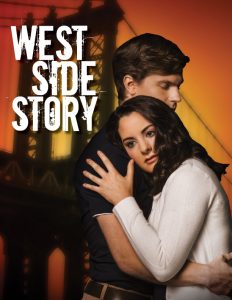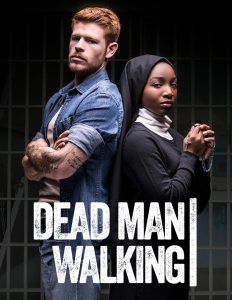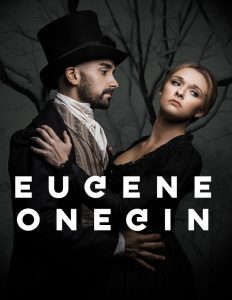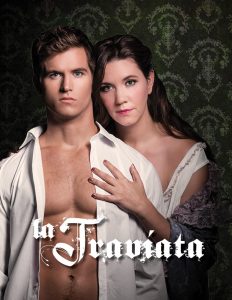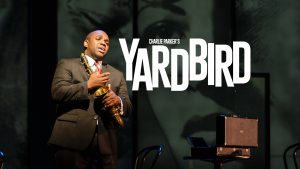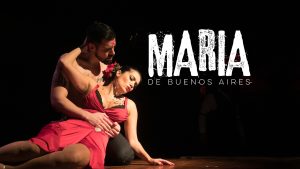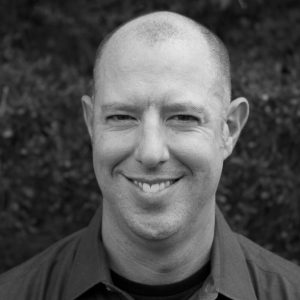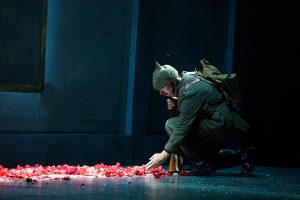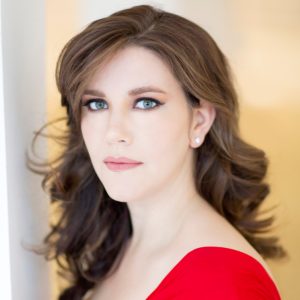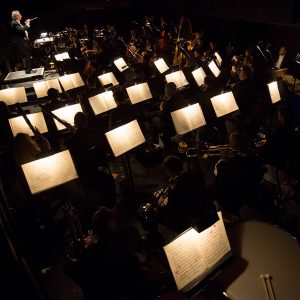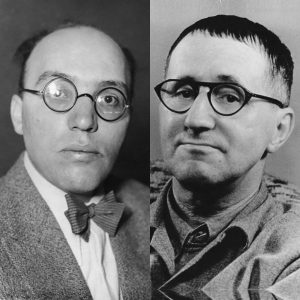
Mezzo-soprano Jennifer Larmore will join us in September to sing one of her “bucket list” roles, Anna, in Weill’s The Seven Deadly Sins. We chatted with her about growing up in Atlanta, women and the opera industry, and her recent book, Una Voce.
You’re an Atlanta native! Where did you go to school and when did you start singing?
I grew up in Southeast Atlanta where I attended H.O. Burgess Elementary school, then we moved to Marietta when I was 12 years old. I went to J.J. Daniell Middle School, then Sprayberry High School. You know the old saying, “You can take the girl out of the South, but not the South out of the girl”? Well, I can certainly attest to that! Here in Paris, I’m a long way from Georgia, but I still yearn for the atmosphere of the deep South. When I’m feeling nostalgic, I think of my mom’s squash casserole, the fans going non stop on a hot day, the moss hanging from the trees, boiled peanuts and so much more. Growing up there was a delight for me.
My mom, Eloise Larmore said that I sang before I talked! I was always the little child in the class with the loudest singing voice, the one who got overly excited when music time came in class, and I wasn’t afraid to sing solo. I started piano when I was 7, flute when I was 12 and at 14 I had the basic voice that I have even now. It was a given for me. Music was always in our home because my father, William Larmore, sang in The Atlanta Opera Chorus, Barbershop quartets, played records for us, and took us to the hear the Atlanta Symphony, The Atlanta Opera, the MET on tour and to voice recitals.
Who or what are your greatest influences?
My greatest influences hands down have been my parents. I know not everyone has had the total support and love like I received from them, but for me it gave me the foundation to go out in the world and pursue a dream in which very few ever find success. I believed them when they told me that I would be successful at whatever I did. I never questioned it because they didn’t. That kind of unwavering support is worth it’s weight in gold! Of course later on, influences in my field became people such as Leontyne Price, Regina Resnik, Frederica von Stade, Marilyn Horne, Maria Callas–all these women showed how elegant being an opera singer could be. They were and are mezzos who made it to the top and paved the way for mezzos in the future to become glamorous, when all that was available to us in the past had been hags, witches, and old woman parts! I’m thankful to them for what they did to achieve their goals and show me how to do the same. I have tried to be an advocate for young singers in the same way.
Any favorite roles?
For two decades I sang Rossini, Handel and bel canto music. I loved that repertoire, especially Isabella in l’Italiana in Algeri, mostly because she was a woman with a solution for everything, and I wanted to be that kind of woman. I loved developing her more every time. Cesare in Handel’s Giulio Cesare was one that fit me like a glove as did Romeo in Bellini’s Capuletti ed i Montecchi. He was such a hot head with music to match his moods. The bel canto flow throughout that opera is filled with elegance and passion which I found so engaging and fun to explore. Rosina was the pal of my youth, and one which saw me through important debuts at the MET, La Scala, Teatro Colon, Vienna and many other theaters, so she will always be close to my heart. As I’ve gotten older and more “age appropriate” roles have come into my repertoire, I’ve found Kostelnicka in Janacek’s Jenufa to be a great favorite of mine! She is driven by the love for her step daughter to an act of terrible depravity. Lady Macbeth in Verdi’s Macbeth was also a surprise and a treat for me. I never, in my wildest dreams ever thought I’d do that role because I had the mistaken idea that it should be sung by a honking huge voiced verismo singer, when in reality, it is a bel canto role meant for a voice like mine. Verdi wrote that he wanted an “ugly voice” and hopefully I don’t fit that description, but he also wrote specific bel canto dynamics and instructions that only a true bel canto singer can do.
How would you describe your character, Anna I? How is she similar/different to Anna II?
Anna I and Anna II are very different sides to the same woman. Anna I sees herself as a pillar of morality with the right point of view about everything. She sees herself as the savior of Anna II. She thinks Anna II cannot see what is right, and it is her duty to make sure she does. In the Prologue, Anna I says that they find a job dancing in a cabaret, when the reality again is the Anna II is a topless dancer in a strip joint. It is a split personality. Anna I feels a bit trapped and only wants to go home and live a quiet life. Anna II wants love and adventure and her impulsiveness is an impediment to their success. Personally, they aren’t so different from a lot of us singers out there traveling constantly! When we’re on the road, we dream of being home in our favorite chair, and when we’re home, we dream of going again, so it’s a swirling circle of ups and downs all the time. The Annas are at odds with themselves as are most singers.
What are the challenges with the role?
The challenges of any role is bringing it to life for the people in the audience in a way that they can relate. When we read books or watch movies, we want to be a part of the story and that is the job of the performer: to bring the audience up onstage and make them a part of the experience. When I sing The Seven Deadly Sins, I want to do just this. I want my audience to go along this journey with me, so my challenge will be to relate to them through the music, the words and the staging. I also have to wear the costumes in a way that communicates who I am as Anna. If you cannot make a costume work, then you have a problem. That is a special challenge. I’m lucky in that we have a wonderful costumer for this production, Joanna Schmink. She has been nothing but respectful and communicative with me during this process, which isn’t always the case. I appreciate it when someone takes into consideration the thoughts and feelings of the performer. I’m not comfortable if I’m standing onstage baring all like some directors want these days. I can’t concentrate on the important things like singing and communicating if I’m worried and self conscious about what I look like! Joanna is finding just the right costumes for me that fit my body and personality and not forcing me to wear something just because she and the director had an idea. They are both open and willing to make costumes in which I can actually work comfortably, elegantly, and in which I can feel myself and the character fully.
How is Anna’s story relevant for a modern audience?
Anna’s story is completely relevant for today. Women are always searching for recognition, love, a place in society, and a way to make a living. Anna goes away from Louisiana, and she gets a job because she needs money. Many women do this today and will continue to leave where they were born to go make their mark in the world in another place. I came all the way to France! Women are always going to search for love and maybe even lose it along the way. Women are always going to try to find the right job, but sometimes get stuck doing something they don’t want just to make a living. Anyone can relate to this piece and some of the the statements it makes are as relevant today as when they were written.
Your book, Una Voce, came out last year. You mention that you were inspired to write it for young singers, and “ordinary people doing an extraordinary and sometimes misunderstood job.” What misconceptions do you think people have about opera singers?
My book Una Voce grew out of the many Q & A sessions I had after master classes. It broke my heart sometimes to hear how much help the young singers needed to achieve even the most basic steps in having a career such as securing an agent or deciding on repertoire. The book almost wrote itself!
The misconceptions that people outside of our profession may have are that it is a glamorous job where you just stand up there, open your mouth and glory pours out! Or that just because you have a fantastic voice, you will make it to the top. It simply doesn’t work that way. There are literally years upon years of lessons, vocal and psychological struggles to understand the process of singing–which sometimes never ends. It is years of rejection tinged with a few successes here and there which are just enough to keep people going towards their dream. There is glamour, but it is only accessible to a privileged few. I was one of the lucky ones because I was at the right place at the right time and everything seemed to be aligned in my favor. Not to say that I didn’t work extremely hard, but I realize I have been one those happy few who actually got to grab the brass ring and I’m eternally grateful that it happened as it did for me. However, I never for one minute forget how hard it was just getting started or any of the hardships I had along the way. The person observing our lives from the outside can now get a glimpse of what it’s like inside from Una Voce.
You write about the challenges women face in the industry, and you even recall some pretty frightening scenarios you had to endure. Do you think the landscape is changing for women in opera, or is there still a lot of work to be done?
Hollywood has come to stay in the opera world which will always make it difficult for some women to get ahead. We have to look like the characters we’re performing. The days of standing on the prompter’s box, hands folded and simply singing beautifully are gone. There isn’t a prompter box anymore in most theaters, and nobody can stand still anymore. All the power is in the director’s hands and if you don’t have a confident director who believes in the power of the music to stand alone in some instances, then you will find yourself in a bra and panties running non-stop around the stage! Personally, I like the realistic point of view where you fit the character you’re portraying, and I definitely support the notion of being as fit as possible. But, in reality, we are not dealing with movie stars who work out hours per day, starve themselves to be thin and make it a priority to have no body fat! We are dealing with opera singers who travel constantly, eat comfort food, drink after a performance and raid the mini bar at 1:00 a.m.! We are a different animal altogether with different needs and eventually different physical results. The industry will continue in this vein and hopefully, we will be able to adapt even more by staying as fit as possible and as attractive as possible. But, also, hopefully we will continue to have people in the positions of dressing us who realize that we are sometimes normal people with an abnormal job who need a little help to feel good onstage!
You’ve been in the industry for more than 30 years and have performed all over the world. Are there any roles you still want to sing that you haven’t?
In this time of my life, I’d like to do The Marschallin in Der Rosenkavalier. My voice has gone up which has been a surprise for me as I always thought it would go down the older I got. I feel comfortable in that tessitura and in every way I’m ready for her. I hope to do Kostelnicka in Jenufa again as I know her so well now and once you learn all that Czech, you want to use it as much as possible! Other than those, anything that I do now is icing on the cake. The Seven Deadly Sins is a real cherry on top of my cake and I’m grateful to Tomer for asking me to sing Anna. Coming back to my hometown to sing the music of a composer that I’ve sung my entire career is kind of like coming full circle. It’s a delight and a treat, not to mention having my family and dear friends close by, as well as squash casserole and boiled peanuts at my fingertips!
jenniferlarmore.net
jlarmorebook.com
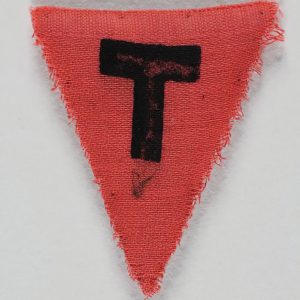

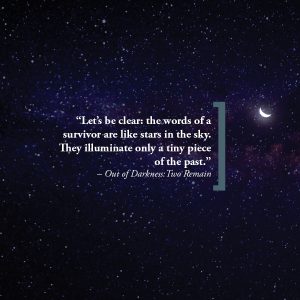 Depicting the Holocaust in the theater presents special challenges to audience members. Some may expect feelings of hopelessness, inevitability, and emotional exhaustion. American composer Jake Heggie’s Out of Darkness: Two Remain crafts a different experience. It reminds us that although countless stories emerged from that dark, dark chapter in world history, they often bring something richer, more nuanced, and more complicated.
Depicting the Holocaust in the theater presents special challenges to audience members. Some may expect feelings of hopelessness, inevitability, and emotional exhaustion. American composer Jake Heggie’s Out of Darkness: Two Remain crafts a different experience. It reminds us that although countless stories emerged from that dark, dark chapter in world history, they often bring something richer, more nuanced, and more complicated.